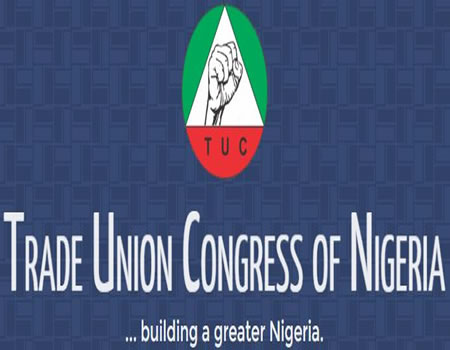The Trade Union Congress of Nigeria (TUC) and the Solidarity Centre AFL-CIO has expressed commitment to partner with other local Non-Governmental Organisations and Persons With Disabilities (PWDs) groups to form a national coalition to fight Gender-Based Violence and Harassment (GBVH) in the world of work.
The agreement was reached at a two-day virtual stakeholders meeting where it was observed that PWDs have not been adequately captured in the campaign against GBVH.
At the meeting, a research report on gender-based violence and harassment was presented. The research noted that GBVH occurs in the country’s world of work at a very high rate and that no age group or sector is free from this menace.
“An alarming 57.5 per cent of women workers interviewed across all sectors stated that they experienced GBVH in the world of work. Respondents below 30 years old and between the ages of 30 and 39 experienced the highest rates of GBVH,” the report read.
Its key findings are that “the nature and form of GBVH experienced by women workers across all sectors and various age ranges include physical violence, sexual violence including rape, sexual harassment and verbal and sexist abuse, bullying, coercion, economic or financial abuse, stalking, psychological abuse, intimidation and threats of violence, and domestic violence.”
The research also noted that, “About 44.4 per cent of respondents said they had suffered sex discrimination affecting career advancement. Nearly one-third (28.8 per cent) of respondents said they had been pressured for sexual favours at work and touched in a way that made them feel uncomfortable.”
It then recommended that “the government should ratify and implement ILO Convention 190; adopt national legislation that covers formal and informal workers, and embraces the definition of GBVH from ILO C190, which prohibits sexual harassment and many of the additional abuses.
“Employers (should) adopt workplace policies that prevent and address all forms of GBVH in the world of work including a safe confidential process for reporting incidents of GBVH, transparent processes for investigation of allegations, remedies for workers, penalties for harassers and changes to how work is organised to address power imbalances and other GBVH risk factors. Educate all workers (including managers) about GBVH and how to prevent and protect themselves against GBVH.”
Furthermore, it noted that, “Root causes of GBVH include unique power relations. Multiple interacting forms of discrimination that play up in our society (eg class, race, ethnic, religious, ableism); gender stereotypes which both reflect and reinforces the subordinate status of women in many societies.”
Stakeholders also agreed that the national coalition would work to ensure that governments, employers, workers organisations and labour market institutions recognise, respond to and address impacts of gender-based violence.
Speaking during the meeting, TUC Women’s Commission Chairperson, Comrade Shaibu Hafsat, said there is an urgent need to deal with the clear lack of coordination amongst key stakeholders who work around GBVH.
According to her, a strong coordination from all stakeholders would go a long way in pushing for the review of inadequate legal frameworks, poor implementation and enforcement of laws and workplace policies to promote safe workplaces.
Hafsat said the country’s world of work is characterised by pervasive gender-based violence and harassment, which workers and affiliates of the TUC and its sister centre the Nigeria Labour Congress, continue to grapple with.
She said the TUC Women Commission sees GBVH as a major human rights and workplace health and safety issue because all workers, but primarily women workers, are at risk of experiencing abuse, harassment and violence based on their gender.
She said, “I strongly believe that strong coordination from us all will go a long way in pushing for the review of inadequate legal frameworks, poor implementation and enforcement of laws and workplace policies, and entrenched gender discriminatory norms continue that hamper union and civil society efforts to prevent and address the problem.
“It is with this in mind that we as TUCWC approached Solidarity Centre for collaboration to build a strong network of stakeholders that can take on this work and particularly work to ensure that ILO C190 is ratified in Nigeria.”
She commended the Solidarity Centre AFL-CIO and the NLC for the research work on GBVH, saying it would be used as a tool to enhance the call for action from government and employers.
The meeting had in attendance representatives from the Nigeria Police, media, FIDA, Association of Nigeria Women in Business Network (ANWBN), Sexual Assault Referral Centres, (SARCs), NAPTIP and other NGOs. Stakeholders agreed to implement and sustain a process of advocacy for increased accountability and transparency over workplace gender-based violations.




